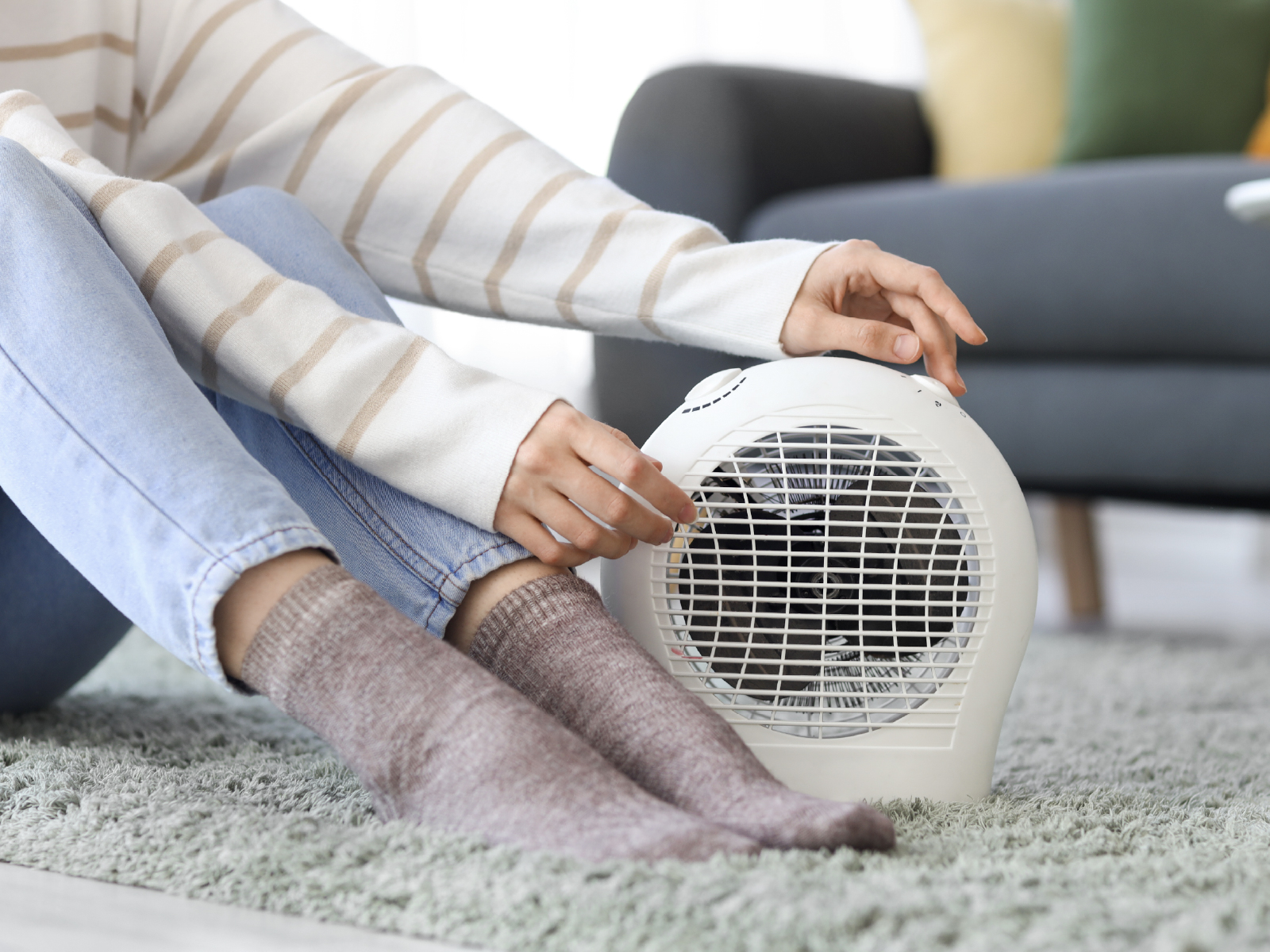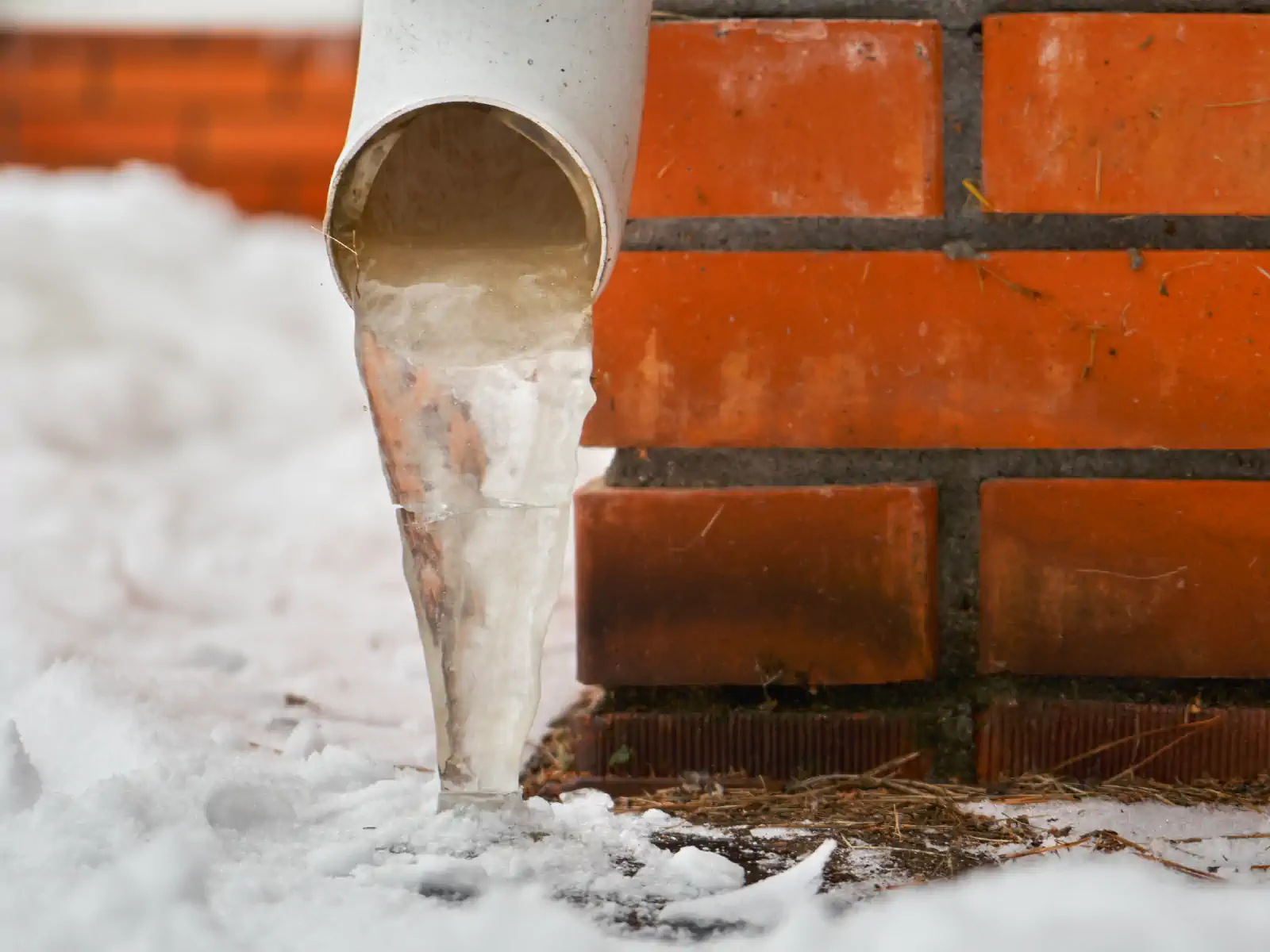Alberta sees more than its share of sudden power outages—from wildfires and windstorms to deep freezes and equipment failures. While some outages are short, others can last hours or even days. In some cases, you may need to evacuate your home with little notice.
When these events happen, your home energy system becomes vulnerable. Without action, a short outage can lead to:
- Damaged appliances from power surges
- Food spoilage and water damage
- Fire risk from candles or backup systems
- Increased repair and replacement costs
- Missed safety alerts during an evacuation
This guide gives you clear steps to take—not just to get through the emergency, but to protect your home, save money, and stay connected.
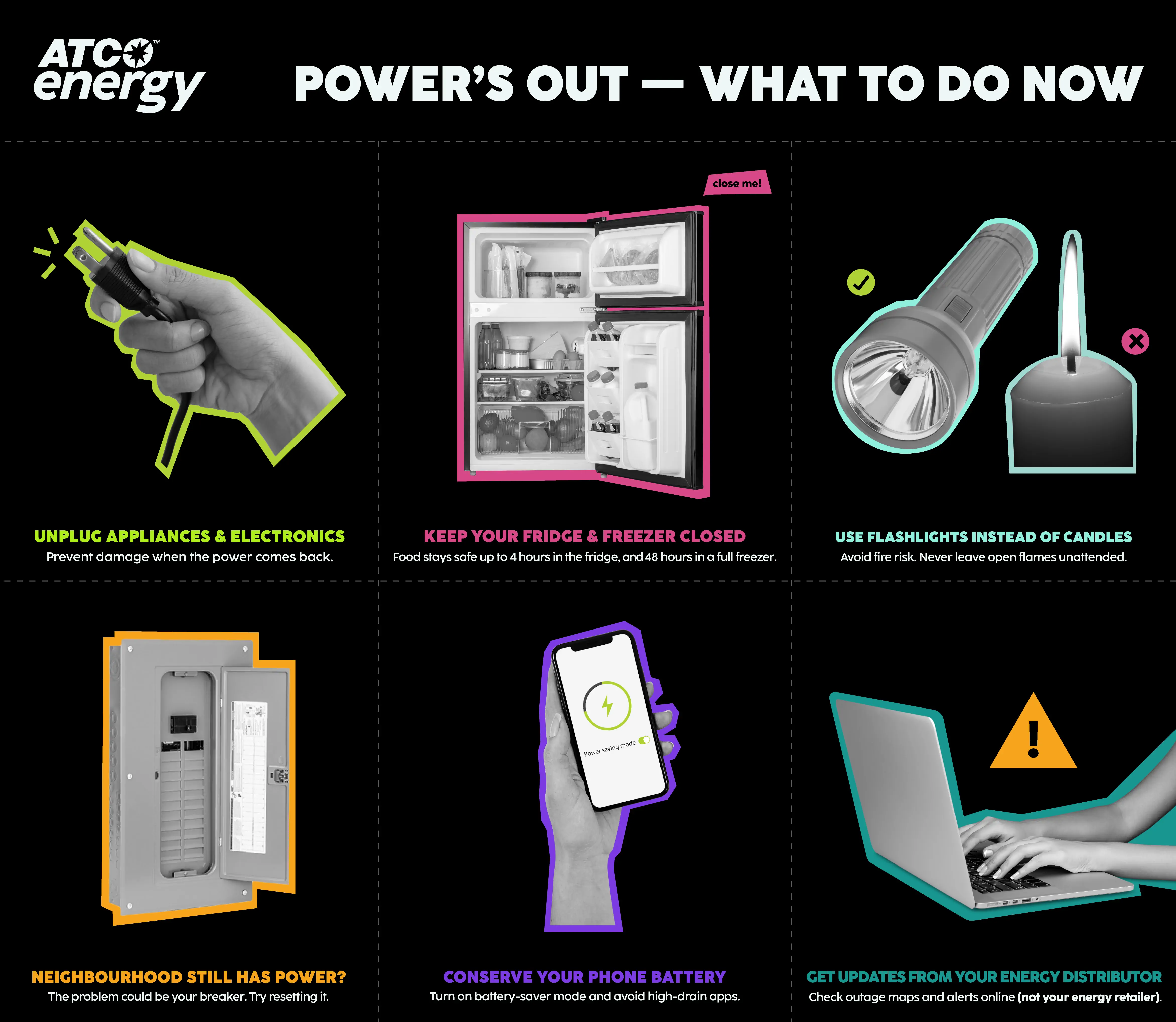
Why power outages happen in Alberta
Knowing what causes outages helps you understand what kind of risk you’re facing. Alberta homes may lose power due to:
- Wildfires, which can damage lines or force utilities to shut power down for safety
- Storms — Wind, snow, and lightning can knock down power lines
- Equipment failure, such as blown transformers or overloaded systems
- Planned outages, often to prevent wildfires or do urgent repairs
- Vehicle or construction accidents, where power lines are hit unexpectedly
No matter the cause, the right response helps you stay safer and avoid damage.
If you're in a power outage or blackout
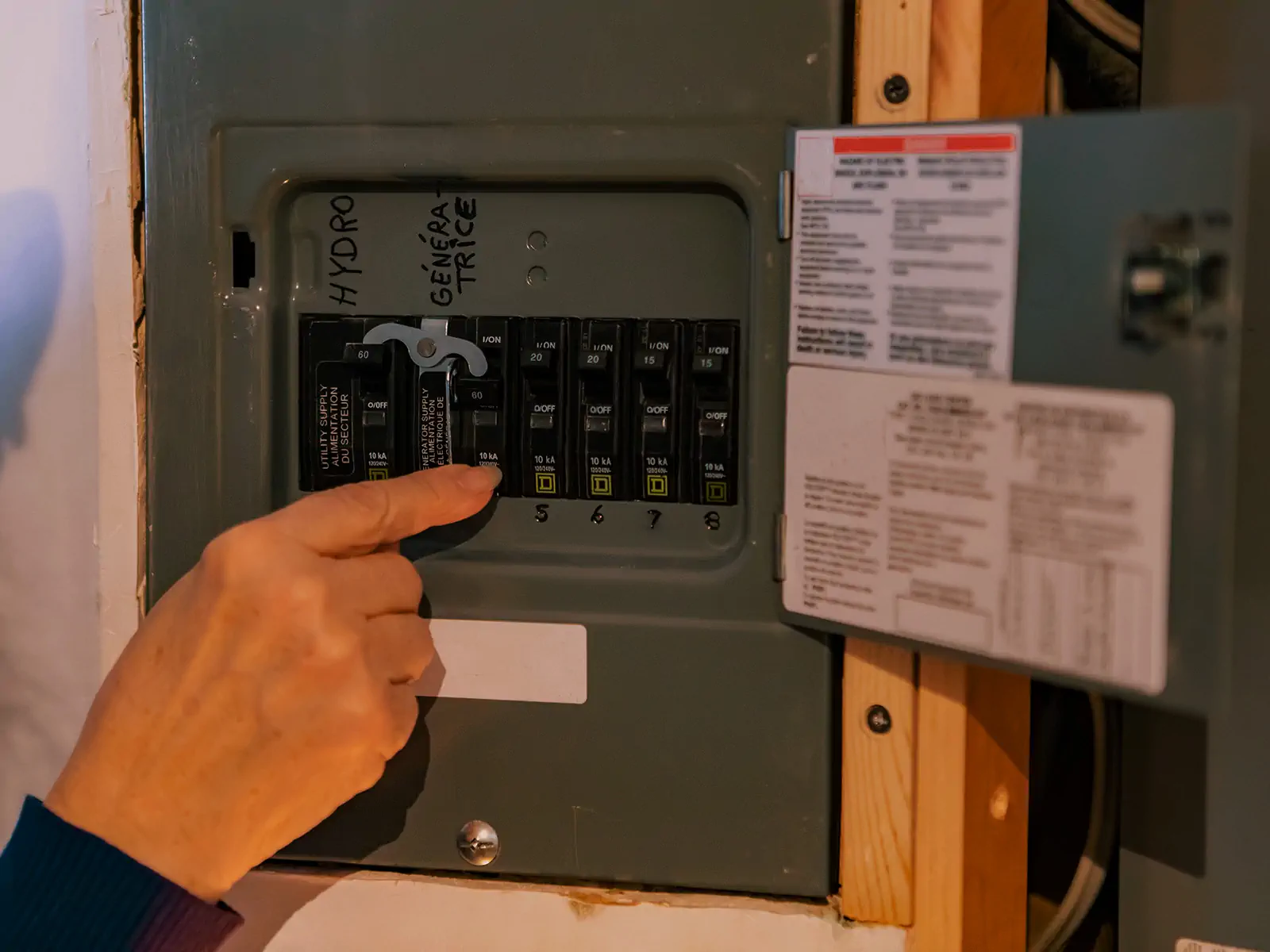
When the power goes out unexpectedly, your home energy system is left without protection. Here's how to reduce the risk of fire, food spoilage, and damaged electronics.
1. Check the source
Find out if the outage is limited to your home or affects your area:
- Look outside: Are your neighbours’ homes dark too?
- Check your breaker panel. If one switch is off, reset it.
- If it’s just your home, call a licensed electrician.
2. Protect your appliances
Sudden power surges when electricity returns can damage electronics:
- Unplug TVs, computers, appliances, and power bars
- Leave one light on to signal when power is restored
3. Keep your fridge and freezer closed
Food safety can become a serious concern after 4–6 hours:
- A full freezer keeps food safe for up to 48 hours
- A fridge keeps cold for about 4 hours if unopened
- Avoid opening doors unless necessary
4. Use safe lighting
Fires caused by candles are a common risk during outages:
- Stick to flashlights or battery-powered lanterns
- Never leave candles unattended
5. Manage temperature safely
Power loss can affect your heating or cooling system:
- In cold weather, close doors and windows to retain heat
- In hot weather, keep blinds shut and open windows at night if safe
6. Conserve your phone battery
Your phone may be your only way to receive alerts or call for help:
- Enable battery-saver mode
- Avoid apps that drain your battery
- Text rather than call when possible
If you’re evacuating your home
Evacuations often happen quickly and during stressful situations. But taking just a few extra steps before you leave can protect your home from fire, flooding, or electrical damage while you're gone.
Important: If authorities instruct you to evacuate immediately, do so. Do not delay to complete these steps if your safety is at risk.
What to do before leaving (if safe to do so)
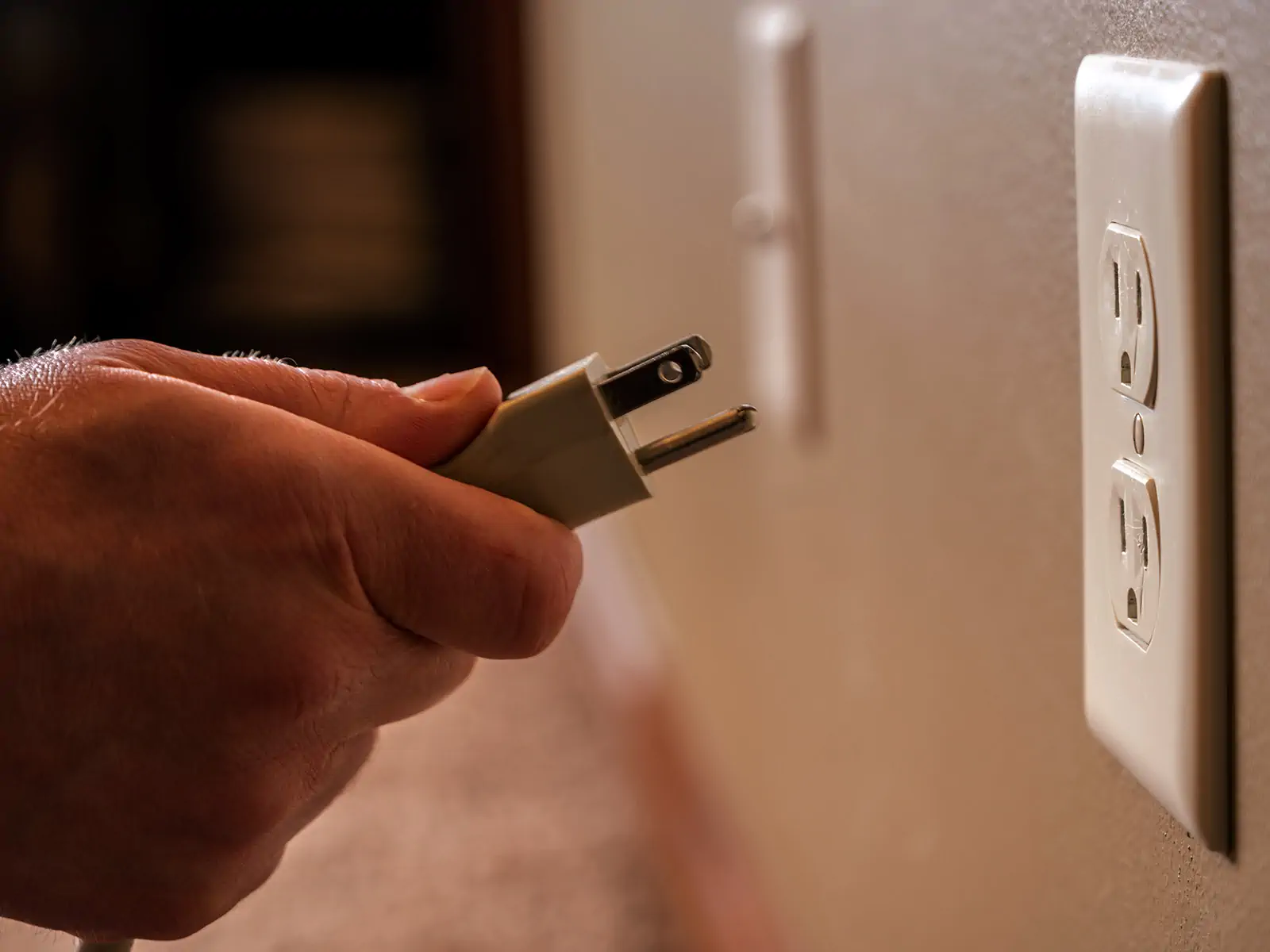
- Turn off and unplug all appliances. This prevents power surges or fires when power returns.
- Leave your breaker panel on. This allows your fridge, sump pump, and other essential systems to restart automatically when power is restored.
- Do not shut off natural gas unless instructed by emergency officials. Gas lines are safest when handled by professionals
- If it’s safe, shut off your main water valve. This helps prevent water damage from frozen or burst pipes
- Close all doors and windows to reduce fire risk.
- Let someone know where you're going and how to contact you.
- Take a photo of your breaker panel and major appliances for insurance.
Evacuating due to wildfire
Wildfires are unpredictable, fast-moving, and one of the leading causes of planned outages and evacuations in Alberta. The actions you take before leaving can give your home a better chance of surviving.
Only follow these steps if conditions are safe and you have time before evacuating. If fire is nearby or an evacuation order is active, leave immediately.
If time allows:
- Clear flammable items within 10 metres of your home (furniture, toys, woodpiles).
- Sweep dry leaves and debris from your yard and gutters.
- Mow long grass near your home.
- Cover or seal vents with duct tape, metal tape, or plywood.
- Move propane tanks away from structures.
- Prop open wooden fence gates attached to your home.
Use your best judgment. If smoke is thick, fire is close, or roads may be blocked—focus on getting out safely.
During a prolonged outage
Outages that last more than 6 hours may need more attention. Extended blackouts can lead to:
- Food spoilage
- Health risks in extreme heat or cold
- Loss of communication or emergency alerts
Here's what to do:
- Use a battery-powered or crank radio to stay informed.
- Check on neighbours, especially seniors or those with health issues.
- Throw away food that may have spoiled (when in doubt, throw it out).
- Use generators safely—never indoors or in garages.
- Avoid using propane or charcoal stoves inside.
Who to contact during a power outage

You typically don't need to call your energy retailer (like ATCO Energy) during a power outage. They don’t manage the electricity lines or restore service.
Contact your electricity distributor:
- Distributors (like ATCO Electric or FortisAlberta) handle outages and repairs.
- You can find your distributor’s name and contact info on your energy bill.
- Visit their website or outage map for updates.
If you're not sure who your distributor is, your energy retailer can help direct you.
Prepare for the next event
Emergencies are unpredictable—but preparation gives you control.
Build an emergency kit:
- Flashlights, batteries, phone charger
- Bottled water and non-perishable food
- First aid supplies and medications
- Copies of ID and emergency contacts
Make a plan:
- Know your exit routes.
- Choose a safe meeting place.
- Include pets in your planning.
Stay alert:
- Download the Alberta Emergency Alert app.
- Sign up for local alerts.
- Bookmark key websites like Alberta.ca/Emergency.
ATCO Energy is here to support you
We can’t prevent emergencies—but we can help you through them. ATCO Energy is based in Alberta, and we’re here to support you with guidance, resources, and energy advice—before, during and after an event.
Emergency first, preparation second. Always listen to local officials and evacuate immediately if needed. Your safety comes first.






